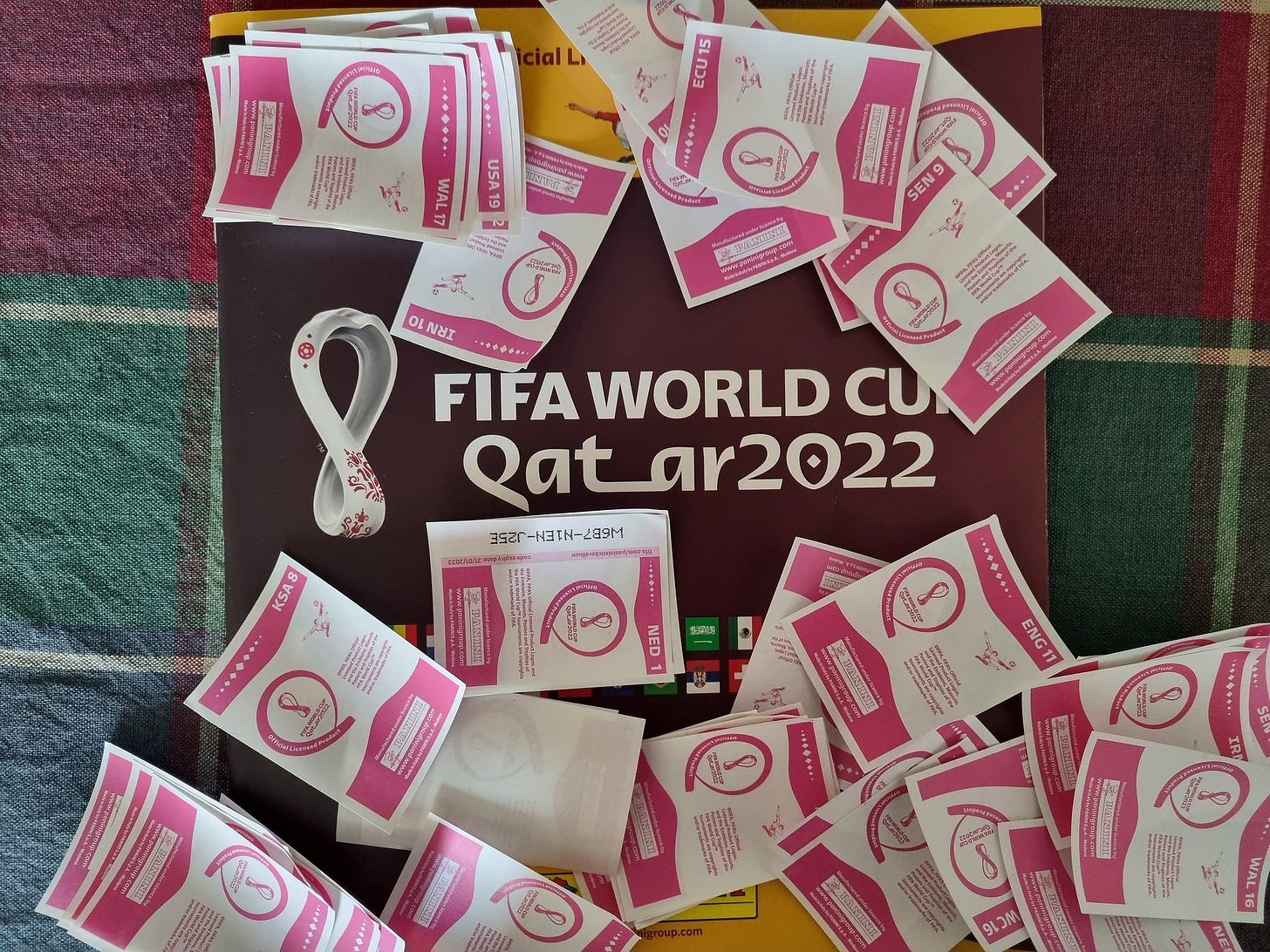
This is Boondoggle, the newsletter about corporations ripping off our states, cities, and communities. If you’re not currently a subscriber, please click the green button below to sign up. Thanks!
The World Cup kicked off this week, marking the first time the tournament has occurred in the winter instead of the summer. That’s because the host is Qatar — which to be clear, is a disgrace, for reasons having nothing to do with the weather.
A corrupt bidding process led to the world’s premier sporting event taking place in a tiny Middle Eastern petro-dictatorship where being gay is illegal and the stadiums were constructed under a system of modern day slave labor — with thousands of workers dying as a result. It’s horrendous, and in a just world would be the end of FIFA, world soccer’s governing body.
But it’s not a just world, so here we are.
One thing about having a petro-state with nearly unlimited resources host the tournament, though, is that it largely put a lid on the usual talk that the World Cup is some giant economic booster. No, to find that you need to look ahead to the next tournament, which will be here in the United States, which is co-hosting with Mexico and Canada in 2026.
Already, four years ahead of that tournament kicking off, I’ve seen loads of articles and talking heads pontificating on how much the various cities that host games will benefit economically. Here’s just a sampling.
Overall, boosters including the U.S. soccer federation, are claiming that the tournament will bring a more than $3 billion benefit to the North American hosts, with individual cities reaping hundreds of millions of dollars each.
These numbers are nonsense.
I know, it makes intuitive sense that the World Cup would be an economic booster. Lots of fans, many of whom traveled from elsewhere, filling stadiums and bars to watch games has to have some effect, right?
Alas, that effect is offset by other things that limit the benefits a World Cup can bring to a host city. For one, there are lots of upfront costs for the hosts: Building or refurbishing stadiums and building other transportation infrastructure, for instance. There are costs of organizing security and traffic management. And there are costs to organizing a bid in the first place, including paying bribes to FIFA members. (Joking! Sort of…)
Then there are economic effects during the tournament that blunt the impact it has for the host cities. For one, it’s not like most major cities are empty and devoid of entertainment options unless they’re hosting a World Cup — there’s generally stuff happening. So some level of normal activity is simply shifted over to or displaced by the soccer games, something economists call the “substitution effect.” Some of the money generated by the tournament also leaks out of the local community, back to corporate headquarters elsewhere. (Think: Money spent on Coke products at the stadiums.)
There are other forces at work too, but here’s the academic consensus from studies that look at the economic effects of hosting a World Cup: “The results generally show that the observed impact of the World Cup has been a fraction that touted by the event boosters, and frequently the observed impact has actually been negative.”
In fact, the last time the U.S. hosted the tournament, in 1994, host cities saw drops in income that totaled billions of dollars. Not a great deal! (If you want a good longer read on how these economic effects come about, read this study from Victor Matheson.)
But it’s not all bad. German economist Wolfgang Maennig looked at the 2006 World Cup in his home country and found that while economic effects were minimal, playing host did make residents happier, something he dubbed the “feelgood effect.” As he told me when I wrote my book, “If the World Cup makes people happy, we should invest in a World Cup. … But we should stop pretending that hosting a World Cup will make us rich. It’s not true.”
Indeed, that’s what I find most infuriating about the World Cup economic impact discourse: There’s no need to rely on debunked nonsense. There are perfectly fine defenses of hosting that have nothing to do with dollars and cents. But in order to gin up support and, often, public subsidies for new stadiums as well as support from corporate sponsors, boosters exaggerate or outright lie about massive economic effects from what is, at the end of the day, still just some soccer games.
UPDATE: I included a quick note in last week’s edition about the campaign to break up Ticketmaster. Well, here we are a week later and not only has there been confirmation that the Department of Justice is investigating the corporation, but also several state attorneys general — Tennessee, North Carolina, Pennsylvania, Nevada, and Ohio — have announced that they are looking into it as well.


In addition to their ability to enforce federal antitrust law, state attorneys general have state antitrust law and state consumer protection law that they can use to get at at least some of Ticketmaster’s abuses, including its deceptive pricing. (Anyone who has bought a ticket from Ticketmaster knows that the fees pile on with little notice, dramatically increasing the price of a ticket.)
If these efforts pick up steam, I’ll be back with something longer explaining how they might be successful, or what other tools states might need to really rein in Ticketmaster’s monopoly power.
And, again, add your name here to join the campaign to break up Ticketmaster.
Thanks for reading this edition of Boondoggle. If you liked it, please take a moment to click the little heart under the headline or below. And forward it to friends, family, or neighbors using the green buttons. Every click and share really helps.
If you don’t subscribe already and you’d like to sign up, just click below.
Thanks again!
— Pat Garofalo







